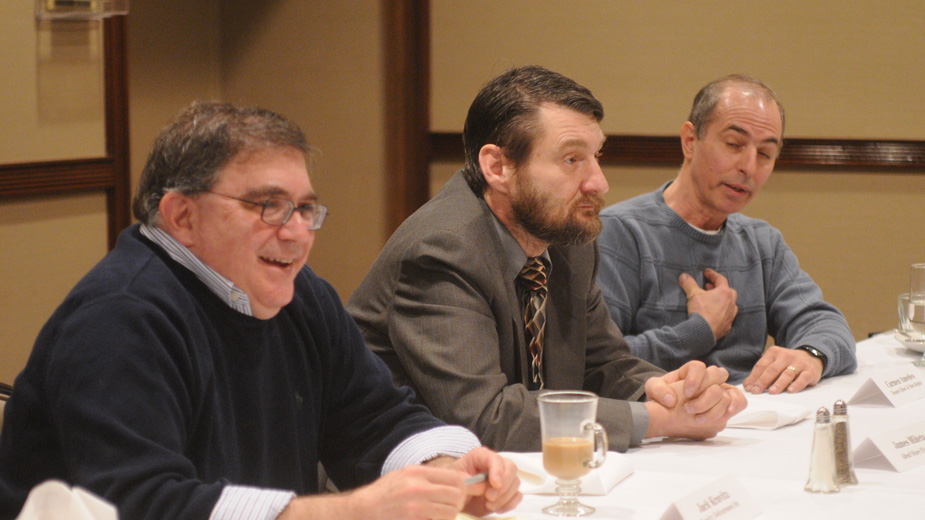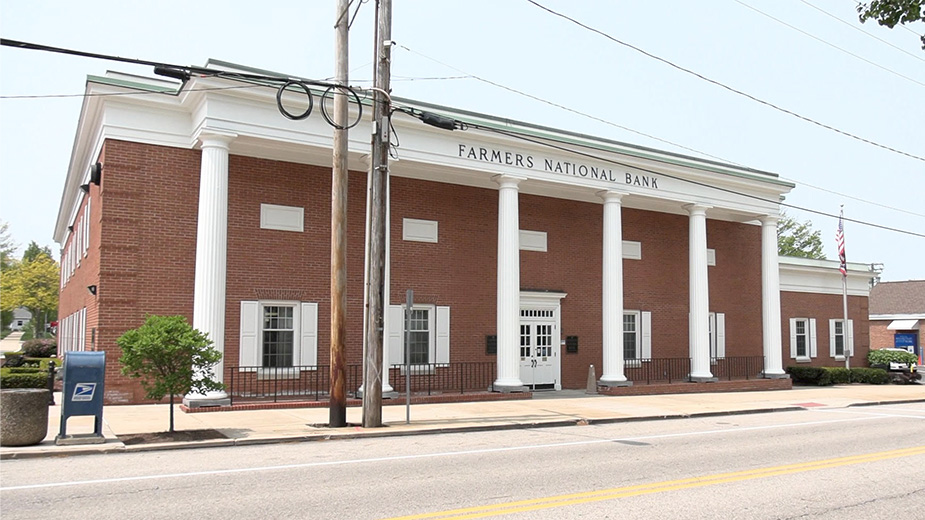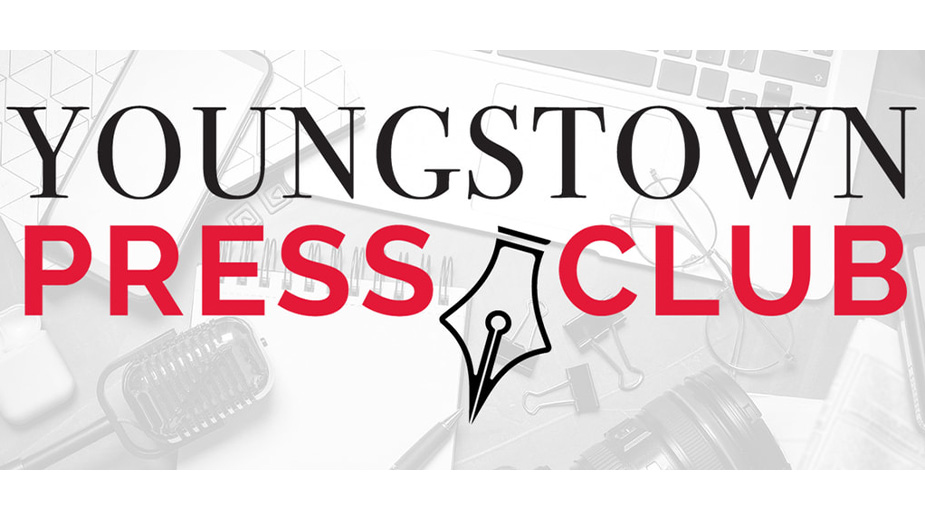Their Small Businesses Differ, Their Challenges Do Not
BOARDMAN, Ohio – Four owners of small local businesses agree that the secret to their success is listening to customers, understanding new marketing trends as they pursue the work that they love.
At the same time, they cope with the headaches of administration, regulations, competition and the rising costs of materials and services.
These business owners – Jack Kravitz of Kravitz Delicatessen Inc. and Inspire Catering in Liberty; James Miketa, president of Ideal Store Fixtures in Austintown; Carmen Amadio, owner of Tesone’s Boot & Shoe Repair in Boardman; and Dr. Mitchell Dalvin; a podiatrist in private practice in Austintown – took part in The Business Journal’s recent Small-Business Roundtable held at the Holiday Inn Boardman.
All note that the many misconceptions about owning and operating one’s own business and the work it requires. From establishing new marketing plans to adapt to changing consumer trends to tending to small details, there’s little free time as one would believe.
Kravitz, whose family opened the original deli in Youngstown in 1939, says today he spends most of his time on new marketing plans. While it was initially recognized as a Jewish delicatessen, changes in the ethnic composition of the Mahoning Valley encouraged Kravitz over the years to market more forcefully to other ethnic groups.
“Social media has become a big part of it,” he says, to attract the younger crowd.
Business was off about 5% after a string of years in which business improved annually by 10%, Kravitz reports. Cutbacks at large employers such as nearby Vallourec Star, he suggests, could be a factor in this.
Among the other challenges, last year saw a dramatic spike in the costs of ingredients. “Briskets went up and there was a big increase in turkey,” he says, because of a shortage caused by avian flu.
Kravitz says the most important aspect of business that he’s learned is to develop and execute a solid business plan. “You need a good business plan on paper,” he emphasizes. “So many go into business without understanding expenses and how to run it.”
As a private medical practice, Dalvin says his industry is becoming more consolidated and today is dominated by larger groups or practices hospital systems have acquired.
Last year, Dalvin says, his practice saw a slight increase in business, but overall activity is flat. “We went from two full-time employees and one part-time to three full-time,” he says.
Regulations, reporting, and administrative duties make it increasingly more difficult for private practices to stay in business, he says, although Dalvin vows he plans to stay private. “I will remain independent,” he says. “The administrative burden is tough on private practices. It’s adding complexity to our business and is the main driver to groups and hospitals.”
Among the most important lessons Dalvin learned was from a professor in medical school who stressed, “Listen to your patients,” he says. Like any other business, Dalvin says his patients are his customers, and above all, “It’s important to listen. I listen and then reflect back on that patient.”
Regulations and compliance issues also affect business at Tesone’s Boot & Shoe Repair, says Amadio, since he often has customers afflicted with diabetes and other illnesses that require custom footwear.
“When there are changes to Medicaid or Medicare for example, they [the government] don’t tell you,” he says. “You have to go and find it.”
He described business as “flat” last year, and has just one employee, his sister. However, the business recently picked up two new accounts, and he believes there will always be a demand and need for the shoe repair business.
Those who feel comfortable in shoes they have worn for years often would rather have them repaired than buy new ones, Amadio says.
The business, which dates to the 1930s when Amadio’s grandfather opened on Oakhill Avenue in Youngstown, repairs shoes, boots, purses, leather jackets and other accessories such as leather straps and belts, he says. Still, it’s clear that the craft isn’t attracting newcomers to the industry, he says.
“My grandmother used to say, ‘Take pride in what you’re doing,’” Amadio reflects. “You have to understand that this is a skilled trade and you have to charge accordingly.”
Jim Miketa of Ideal Store Fixtures says that he devotes the bulk of his time to customer service and developing ways on how to expand his customer base as new technology presents new challenges. The company sells and distributes shelving and racking systems for 500 major retailers, mostly throughout central to northern Ohio.
“With today’s technology, you can buy these anywhere, so we spend a lot of time marketing,” Miketa adds. “I’m always thinking and concerned about the business. There’s this idea out there that if you own your own business you’re rich. I’m working 24/7,” he says.
Last year, he reports, was the best year the company had since 2004.
It’s important for small-business owners to pay attention to the details of their operation, he says, recalling that he learned most of his business wisdom from Lou Childs, who operated a manufacturing concern in Pittsburgh.
“He used to say, ‘It’s not what you make, it’s what you keep,’ ” Miketa says. “You’ve got to maintain costs and control overhead.”
PICTURED: Jack Kravitz of Kravitz Delicatessen Inc. and Inspire Catering in Liberty; James Miketa, president of Ideal Store Fixtures in Austintown; Carmen Amadio, owner of Tesone’s Boot & Shoe Repair in Boardman. Not pictured is the fourth participant, Dr. Mitchell Dalvin; a podiatrist in private practice in Austintown.
Editor’s Note: The transcript from The Business Journal’s Small-Business Roundtable appears in the MidFebruary edition, published this week. To obtain a copy, CLICK HERE.
Copyright 2024 The Business Journal, Youngstown, Ohio.



